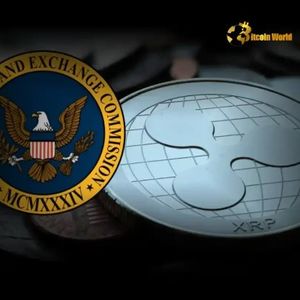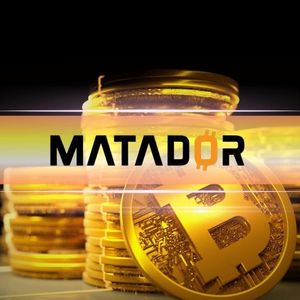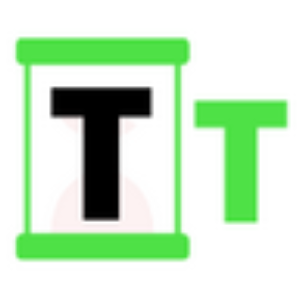Ripple SEC: Pivotal Dialogue on Digital Asset Clarity
5 min read
BitcoinWorld Ripple SEC: Pivotal Dialogue on Digital Asset Clarity The world of cryptocurrency often feels like navigating a complex legal maze, especially in the United States. At the heart of much debate is how existing securities laws apply to novel digital assets. Ripple, a company well-acquainted with this challenge, recently took a significant step in addressing one of the most fundamental questions facing the industry: When does a digital asset separate from the investment contract under which it might have initially been offered? This isn’t just academic; it’s central to achieving much-needed Crypto Legal Clarity . The Core Question: When Does a Digital Asset Stop Being an Investment Contract Crypto? This specific question was highlighted by U.S. Securities and Exchange Commission (SEC) Commissioner Hester Peirce in her insightful “New Paradigm” speech. She posed the idea that while an initial offering of digital assets might constitute an investment contract (and thus be considered a security under the Howey Test), the asset itself, or subsequent sales of that asset, might not. This distinction is absolutely crucial. Think of the Howey Test, which the SEC uses to determine if something is an investment contract. It involves: An investment of money. In a common enterprise. With an expectation of profits. Solely from the efforts of others. Many initial token sales seem to fit this description. However, as a digital asset’s network becomes decentralized, its utility grows, and its price is driven more by market forces and less by the efforts of the original promoters, does it retain the characteristics of an investment contract? This is the pivotal point Ripple is addressing. Ripple SEC Engagement: Seeking Digital Asset Regulation Answers Ripple Chief Legal Officer Stuart Alderoty announced on X (formerly Twitter) that the company submitted an additional letter to the SEC Crypto Task Force . This action demonstrates Ripple’s commitment to engaging directly with regulators on these complex issues. The letter specifically responds to Commissioner Peirce’s question, aiming to contribute to the ongoing dialogue about how to appropriately regulate digital assets without stifling innovation. For Ripple, this isn’t a new fight. The company has been involved in a lengthy legal battle with the SEC regarding the regulatory status of its associated digital asset, XRP. While the courts have provided some clarity, particularly regarding secondary market sales not being unregistered securities transactions, the broader question of when an asset ‘detaches’ from its initial offering structure remains a grey area for many other projects. Ripple’s proactive engagement, even while navigating its own legal challenges, underscores the industry’s urgent need for clear rules of the road. They are essentially asking the SEC to provide guidance on a scenario that many digital assets might evolve into – moving from a potentially centralized initial phase to a more decentralized, utility-driven state. Why This Investment Contract Crypto Clarity Matters The lack of a clear framework for when a digital asset might cease to be considered part of an investment contract creates significant uncertainty for developers, entrepreneurs, and investors alike. Here’s why this clarity is essential: Innovation: Projects are hesitant to build and launch in the U.S. if they fear their asset could be deemed an unregistered security indefinitely, regardless of its function or decentralization. Market Participation: Financial institutions and mainstream investors require regulatory certainty before fully engaging with digital asset markets. Consumer Protection: Clear rules benefit consumers by defining regulatory boundaries and responsibilities. Ambiguity can lead to confusion and potential pitfalls. Global Competitiveness: Other jurisdictions are developing clearer frameworks for digital assets. The U.S. risks falling behind if it cannot provide similar certainty. Ripple’s letter contributes to a vital conversation about finding a balanced approach to Digital Asset Regulation that protects investors while allowing technology to flourish. Challenges in Defining Digital Asset Separation While the concept of a digital asset separating from its initial investment contract seems logical in theory, defining the exact criteria and timing presents significant challenges: How do you measure ‘sufficient decentralization’? Is there a threshold for utility adoption? What about assets that maintain a degree of ongoing connection to their initial promoters? Regulators face the difficulty of creating rules flexible enough for diverse technologies but precise enough to be enforceable. The SEC’s historical approach has often been retrospective, bringing enforcement actions based on existing laws rather than issuing prospective rules tailored to crypto. This makes industry compliance difficult when the legal status of an asset can be subject to future interpretation. Actionable Insights for the Crypto Community Ripple’s engagement offers insights for various stakeholders: For Projects: Focus on developing genuine utility for your token. Work towards greater network decentralization over time. Engage with legal counsel experienced in digital asset law and monitor regulatory developments closely. Consider how your project’s structure might evolve away from reliance on your own efforts for value appreciation. For Investors: Understand that the regulatory status of any digital asset can be complex and subject to change or interpretation. Diversify your portfolio and stay informed about the regulatory environment. The outcome of debates like the one Ripple is engaging in can impact the accessibility and liquidity of certain assets. For Policymakers: The industry is actively seeking guidance. Engaging in constructive dialogue, as the SEC Crypto Task Force is doing, is crucial. Consider whether new legislation is necessary to provide the clarity that applying decades-old tests to novel technology cannot fully achieve. The conversation initiated by Commissioner Peirce and addressed by Ripple is a step towards building a regulatory framework that acknowledges the unique lifecycle and characteristics of digital assets. Conclusion: A Step Towards Crypto Legal Clarity Ripple’s submission to the SEC Crypto Task Force on the separation of a digital asset from an investment contract is a significant contribution to one of the most pressing legal questions in the U.S. crypto space. It highlights the need for a nuanced understanding of digital assets that goes beyond their initial distribution method. Achieving clarity on this point is not just beneficial for companies like Ripple; it is fundamental to fostering responsible innovation, protecting investors effectively, and ensuring the U.S. remains competitive in the global digital asset landscape. The continued dialogue between the industry and regulators, as exemplified by Ripple’s letter, is essential for building a sustainable future for digital assets. To learn more about the latest crypto market trends, explore our article on key developments shaping Digital Asset Regulation. This post Ripple SEC: Pivotal Dialogue on Digital Asset Clarity first appeared on BitcoinWorld and is written by Editorial Team

Source: Bitcoin World



